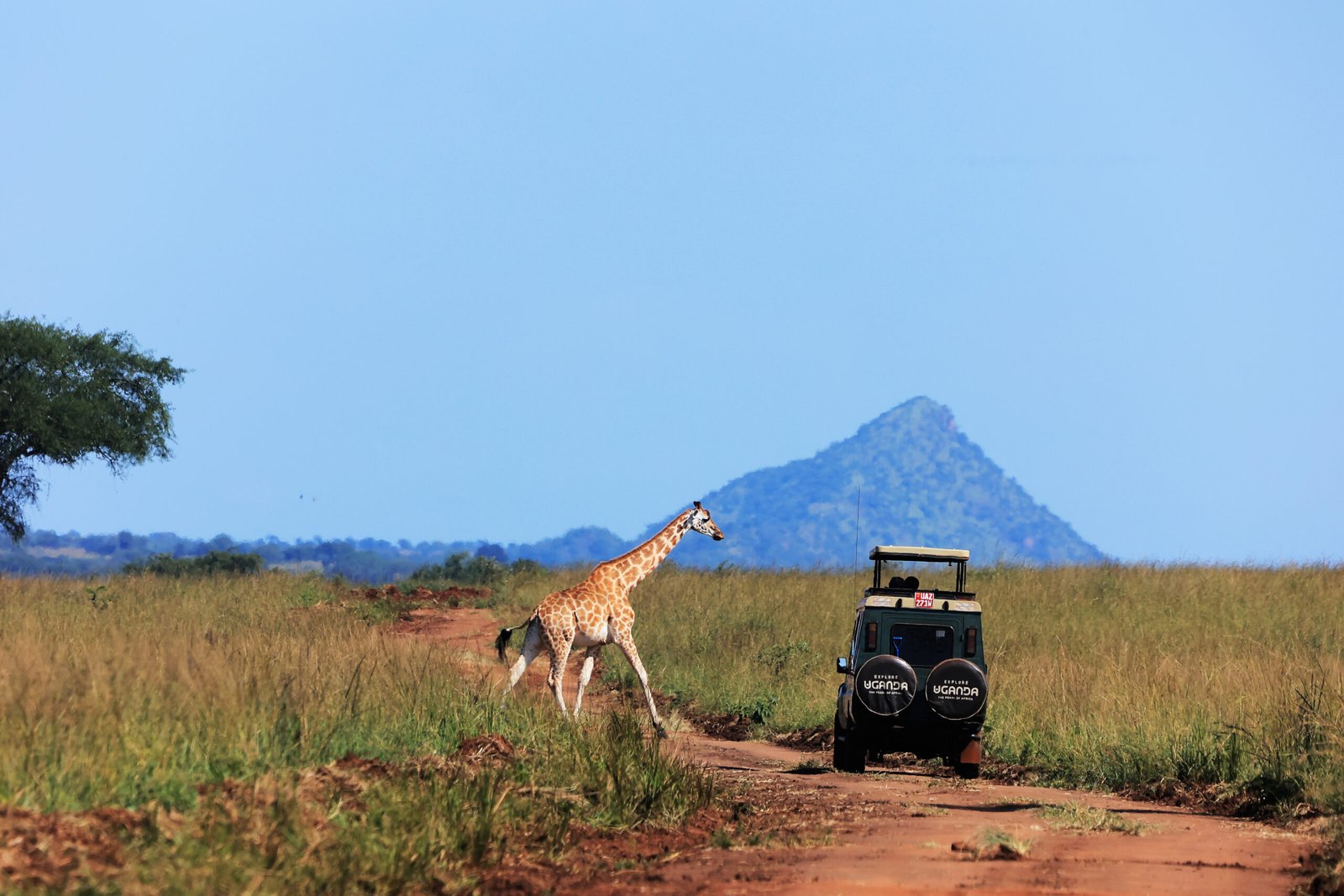Uganda, known as the Pearl of Africa, is a stunningly diverse country in East Africa, famous for its rich landscapes, abundant wildlife, and warm hospitality. Its natural beauty includes the majestic Rwenzori Mountains, Lake Victoria, the source of the River Nile, and abundant flora and fauna. Uganda is a biodiversity hotspot, home to mountain gorillas, Africa’s Big Seven, and over 1,000 bird species. Culturally, Uganda boasts over 56 ethnic groups, each with unique traditions and languages. With its unspoiled wilderness, vibrant cities, and deep cultural heritage, Uganda offers a captivating experience for every traveler.
Uganda is situated in East Africa, spanning from 1° South to 4° North latitude, and between 30° and 35° East longitude. The country boasts a varied landscape, featuring volcanic hills, mountains, and numerous lakes. Positioned at an average altitude of 900 meters above sea level, Uganda’s eastern and western borders are marked by mountainous regions.
Uganda is bordered to the east by Kenya, to the north by South Sudan, to the west by the Democratic Republic of the Congo, to the south-west by Rwanda, and to the south by Tanzania.

Uganda is a vibrant and culturally diverse country, home to over 56 distinct ethnic groups, each with its own traditions, language, and way of life. The population, estimated at around 47 million people, is a true reflection of Africa’s multicultural richness. Uganda’s cultural fabric is woven from the deep histories, unique customs, and shared values of these various communities, making it a fascinating destination for those seeking to experience Africa’s diversity.
The largest ethnic group in Uganda is the Baganda, who primarily reside in the central region around Kampala. The Baganda people are part of the Bantu-speaking group and play a significant role in the political, cultural, and social life of Uganda. Other major ethnic groups include: The Banyankole in the sounthwestern region, known for their cattle keeping tradtions and distinct dialect, The Basoga of eastern Uganda, whose culture is centered around agriculture and fishing along the shaores of Lake victoris, The Acholi and Lango in northern region, who have a rich oral tradition and are known for their elaborate music and dance, and the karamojong in the northeastern region, a semi-nomadic people known for their cattle herding lifestyle and vibrant traditional attire.
Uganda is a multilingua nation with English as the official langauge and Swahili as the natural language. However, thre are over 40 languages spoken across the country, reflecting its ethnic diversity. Luganda, spoken by the Baganda people, is widely spoken in the central region and is often used in business and daily transactions. Other prominent languages include Runyankole in the west, Lusoga in the east, and Acholi in the north.
Uganda’s cuisine is as diverse as its people. The staple foods vary across regions, but typical dishes include matoke (steamed plantains), posho (maize meal), and groundnut sauce. The Baganda favor Luwombo, a dish where meat or groundnut sauce is steamed in banana leaves, while the Acholi often prepare malakwang, a sour vegetable stew served with millet bread. Street food, particularly the popular Ugandan Rolex (a rolled chapati with eggs and vegetables), is enjoyed across the country. Meals are an important part of family and community life, often accompanied by celebrations or communal gatherings.
Uganda has a tropical climate, making it suitable for year-round travel. The climate varies by altitude, with cooler temperatures in the highlands and warmer conditions in lower areas. The country experiences two main seasons: dry and wet.
The dry seasons occur from December to February and June to August, with temperatures ranging from 24°C to 30°C (75°F to 86°F). These months are ideal for wildlife viewing as animals gather around water sources. The wet seasons are from March to May and September to November, with temperatures between 17°C to 25°C (63°F to 77°F). Rainfall is heaviest in the central and western regions but typically followed by sunny periods.

Central and Eastern Uganda, including Kampala and Jinja, experience moderate rainfall throughout the year with consistent temperatures around 27°C (80°F). Northern Uganda, particularly areas like Kidepo Valley, is drier and hotter, with temperatures reaching up to 35°C (95°F) during the dry season. In contrast, Western Uganda, home to the Rwenzori Mountains and Bwindi Forest, is cooler and receives more rainfall, especially in the higher-altitude regions.
The best time to visit Uganda depends on the activities you plan to do. However, the dry seasons from June to August and December to February are generally considered the best times for most activities, particularly wildlife safaris and gorilla trekking.
For thrill-seekers, Uganda is an adrenaline-filled playground. Whether it’s white-water rafting on the Nile, hiking the Snow-caped Mt. Rwenzori, or bungee jumping over the Nile, Uganda offers a wide range of activities to keep the adventurous spirit alive. Key activities include: